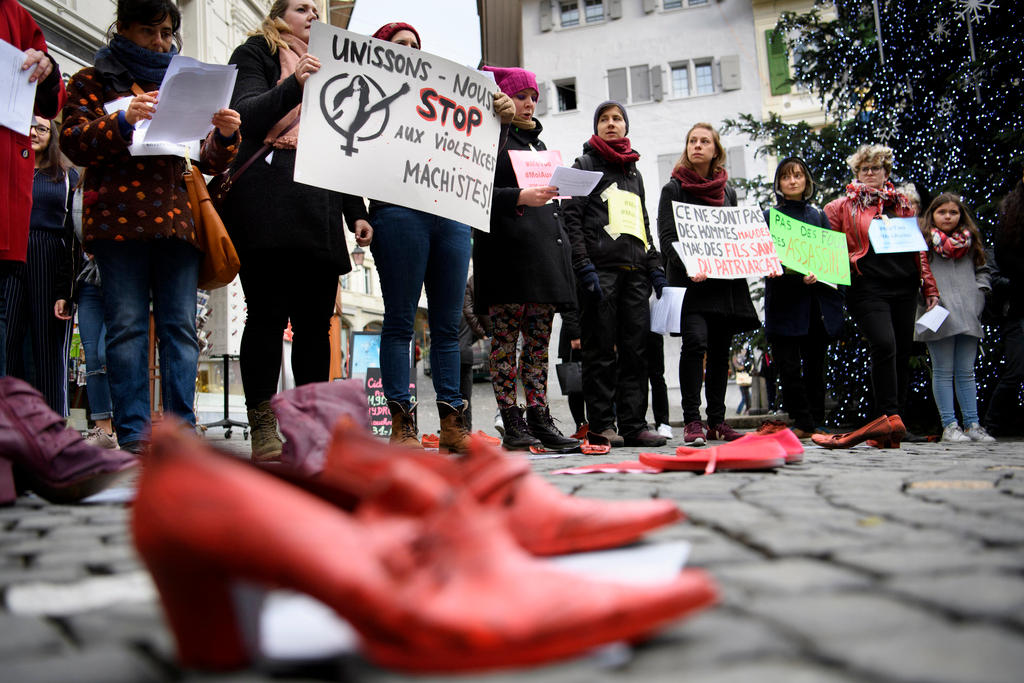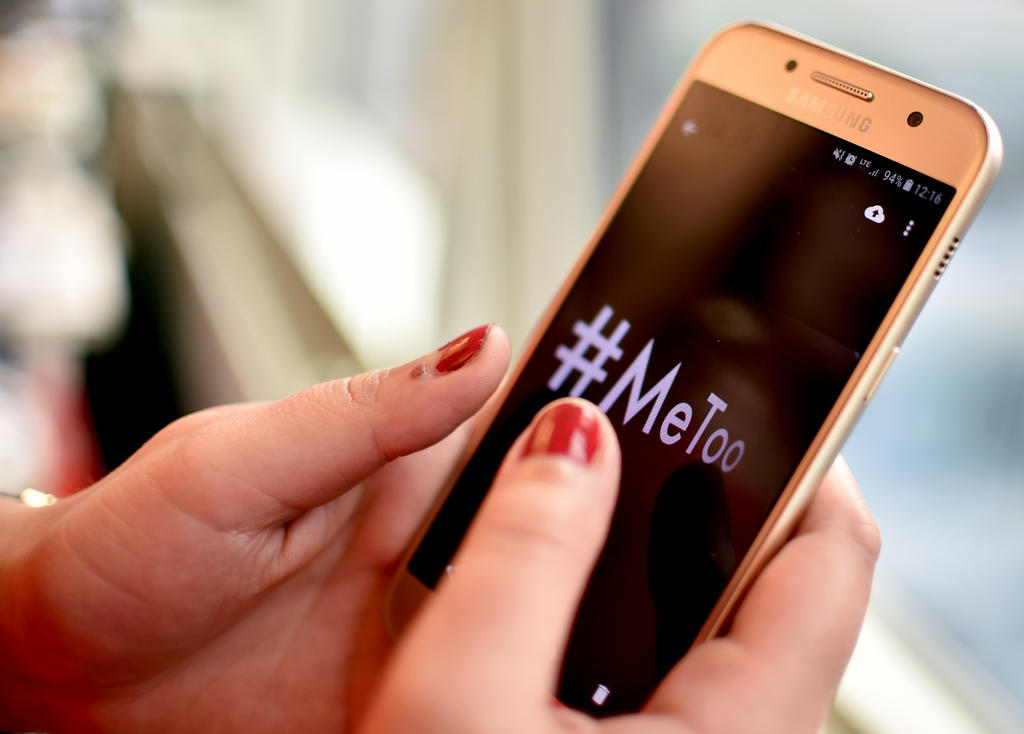What to do if sexual harassment happens to you

Sexual harassment has also been making the news in Switzerland and has prompted a debate about what should be done. In the second part of our series, swissinfo.ch explores how victims and employers should react.
The case of a high-profile parliamentarian Yannick Buttet has brought the issue into the public consciousness and also led to parliament taking its own steps to combat sexual harassment. It is estimated that 28%External link of women experience sexual harassment over the course of their professional lives in Switzerland. But experts say cases rarely get to court.
3. What practical steps and legal actions can people living in Switzerland take if they experience sexual harassment in the workplace?
In addition to psychological and physical harm, sexual harassment can also create a hostile work environment that can affect productivity and professional growth. The University of Geneva recently launched an awareness raising campaignExternal link on sexual harassment after a 2016 study revealed that sexism was one of the major obstacles to female researchers’ career advancement.
UniaExternal link, the largest Swiss trade union, suggests that workers keep a detailed record of the harassment including the date and place it occurred. According to the Federal Office of Gender Equality guideExternal link on sexual harassment in the workplace, the first step employees should take if they are being harassed is to tell the harasser to stop. If the behaviour persists, employees should inform their supervisor, a designated contact point in the company, or a union representative.
The employee and employer may try to resolve the situation internally by shuffling job roles or mediating between employees. There is also the option to pursue a civil case against the employer, and receive compensation of up to six months of one’s salary, if the employer did not take reasonable steps to prevent harassment. Anyone experiencing rape or other forms of sexual assault should pursue a criminal case against the individual. Employees are also protected against dismissal during the duration of internal procedures, arbitration and legal proceedings.
While Swiss law provides victims of harassment with numerous protections, the reality is that rarely are cases pursued in court. A studyExternal link co-authored by Karine LempenExternal link, a law professor at the University of Geneva, found that from 2004 to 2015, there were only 35 cases of sexual harassment in the cantonal courts and only 18% of these resulted in a favourable outcome for the person who was harassed. Lempen explains that some of the key obstacles are that “the requirements for the burden of proof are very high and sexual harassment is not very well-known in the judicial system. Many courts do not investigate whether employers actually put in place appropriate preventative measures”.
Low likelihood of success after a long court case deters many people from coming forward in the first place. Many victims also feel ashamed and fear that the harasser will retaliate or that they’ll face a backlash from colleagues, especially if the accusations result in the dismissal of a well-respected, high performing colleague. Krings explains that most people end up just leaving their jobs.
To support victims, the Federal Office of Gender Equality launched an information and counselling portalExternal link in July 2017 with links to various legal and emotional support resources in the country.
4. How can and should employers respond to cases of sexual harassment in the workplace?
Swiss law requires employers to take measures to prevent sexual harassment but it does not specify what kind. As Nicole Brauchli-Jageneau of the corporate law firm, Vischer, explains, most large companies in Switzerland have no-tolerance policies but they also need to be championed by senior management and socialized throughout the company. The designated contact points in the company also need to be skilled at dealing with these issues with empathy and objectivity.
Employers also need to take swift and discreet action to investigate and address cases of sexual harassment. This is a basic expectation but also essential for building a culture of trust and respect. Brauchli-Jageneau says that companies need to imagine that the “employer is likely not the first person an employee has spoken to about the harassment”. Intervening quickly and appropriately helps maintain office morale.
In November Brauchli-Jageneau co-authored a blog External linkabout the delicate balance between employers’ duty to protect all employees and the presumption of innocence. Conflicts of interest can also arise when employers are concerned about their own liability, which is why Krings recommends companies engage independent third parties to conduct an investigation.
The challenges of rooting out sexual harassment and protecting employee rights are not unique to Switzerland. Laws look good on paper but if people still fear speaking out, the wider cultural changes that are needed simply won’t happen. Brauchli-Jageneau explains that, “if you are being harassed, you are probably not the first person and you won’t be the last”.
This is the second article in a two-part series on sexual harassment in Switzerland.
Parliamentary action
Victims of sexual harassment in the Swiss parliament will be able to consult a specialised, independent advice centre from January 1, 2018, it was announced on December 13. It will be a confidential service.
The decision comes in the wake of the Yannick Buttet affair, which saw the vice-president of the centre-right Christian Democratic Party of the party step down from his role over sexual harassment and stalking allegations. Following this, some parliamentarians spoke out about their own experiences and they and others called for more to be done in parliament.

In compliance with the JTI standards
More: SWI swissinfo.ch certified by the Journalism Trust Initiative




You can find an overview of ongoing debates with our journalists here. Please join us!
If you want to start a conversation about a topic raised in this article or want to report factual errors, email us at english@swissinfo.ch.